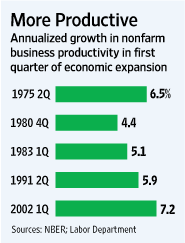Running_Man
Thinks s/he gets paid by the post
- Joined
- Sep 25, 2006
- Messages
- 2,844
As far as taxes the first 16% I sold was all in index funds in my 401K. That is normally my first course of action if I am unsure about the length of time of my holdings and are not purchasing individual stocks. I had planned to hold the other 16% even through any decline since I had purchased most of the shares at a low price and had good dividends on them. Virtually all of these are in an after-tax account, a small portion is in an IRA but most is after tax. I have a general rule on taxes though - I never worry about the tax implication as to whether to buy or sell. I hope to pay lots of taxes over the next few years, I love tax payments much better than tax loss carryforwards. However as I looked at the earnings of the companies and the prospects for the economy I viewed the odds of a coming significant decline as too high for the value of the dividends received.Thanks for going out on this limb, Running Man. I pretty much agree with your analysis. I know one thing- "He who panics first, panics best." When the market is going up it is easy to be brave, or "skeptical of bearish prognostications". But if the market goes down hard from here, many already-retired people who need their nest egg for living are going to have a hard time staying calm. The first crash is bad enough, but if it then goes back up and you feel like you have been granted a stay of execution, look for some pretty squirrely emotions if it heads down hard once more, especially if it should break the March low. A good exercise is to imagine a 50% loss from here, imagine your self after this loss; imagine our new net worth. Imagine talking to your spouse, especially if s/he is not actively involved in investment decision making. Check how you feel.
Getting back to your situation, Running Man, unless the stock you sold was in an IRA/401k you must have incurred some pretty steep ST capital gains? I would enjoy it if you would run through some of your thought processes. You have high credibility because of your excellent preformance in the early rounds.
Right now, I don't own any crap. My equities are all well financed dividend paying and dividend growing companies. Still, they represent 50% of my portfolio (down from about 98%). I know I will not be stampeded out on a drop, but I would not like it much. The only thing that holds me back from further trimming is fear of taxes, and income concerns. Still, if I save $300K in losses not suffered, I can go along for a long time even on zero interest rates.
All equities already have been sold from my IRA, and I have no capital loss carryovers or stocks carried at a loss currently. So any sales will incur ST Capital gain taxes, and also all the nasty side effects of higher AGI.
My mind is still open as to what would be best for me right now. I reasoned this same way in fall of 2007, and I believe I was dead wrong then. I should have sold out and just paid the tax. At that time much of it would have been long term. Valuations were worse then, but the economy appeared better.
Philosophically I reject the idea that anytime is a good time to own stocks. That is only a slogan, made conventional by repetition and a fairly benign experience over the past 30 years.
Ha
Despite my relatively rapid turnover the past couple of years most of the time I hold for very long periods, well in excess of years but when my mind changes on a stock I just sell and whatever the taxes I pay them. I am unafraid of being wrong in taking an action but try and think things through before selling or buying. Selling a portfolio that included rock solid companies KO, PG and JNJ was because I have convinced myself that deflation has taken hold of the economy and with that stocks have no chance. I am on watch though and willing to adjust if inflation does begin to accelerate as at that point stocks will be needed.
Another of the events that really impressed me on deflation being more of an issue than inflation was finding out that in our building there was a firm that was renting 4 floors here in downtown Chicago on an old lease for $30 a square foot. They had 2 years remaining on the lease and wanted another floor, however they threatened to walk and lease at another nearby building while subletting their floors and sign at a new building for the long term and the landlord tore up the lease and took $14 a square foot for the entire 5 floors. The similarity to what is occurring in the BDI index was striking to me.
Our company found out and is now in the final process of negotiating a 30% reduction in our rent on a lease with 10 years remaining. The eagerness/desperation/willingness of a landlord to take a financial hit of that magnitutude on an iron clad contract makes me wonder how many of these are going on right now. These events are a portion of what is showing up as corporate cost reductions right now, however it is not a positive for the economy as a whole, nor is it good for future dividends of stocks, it is portending further contraction.



